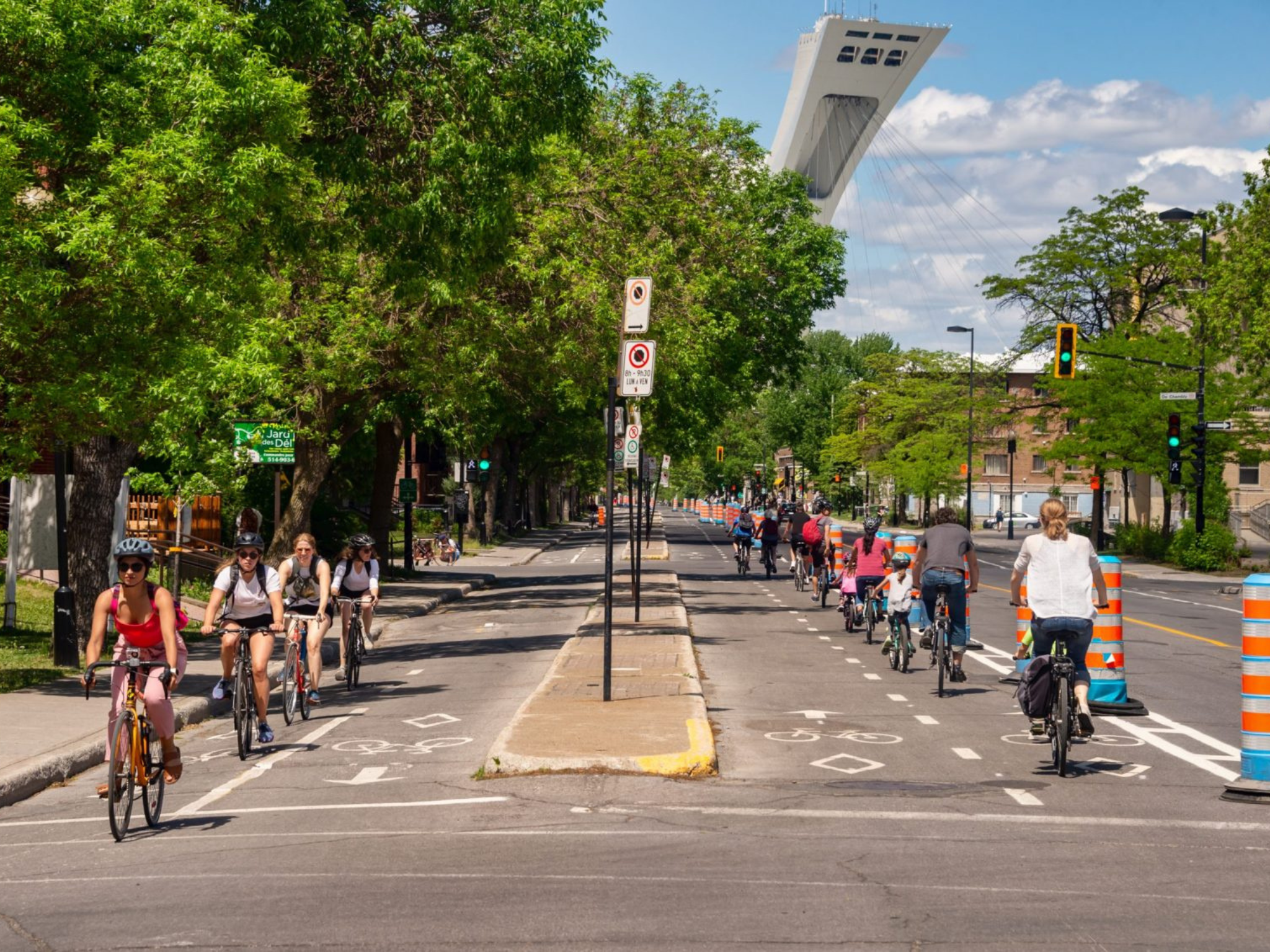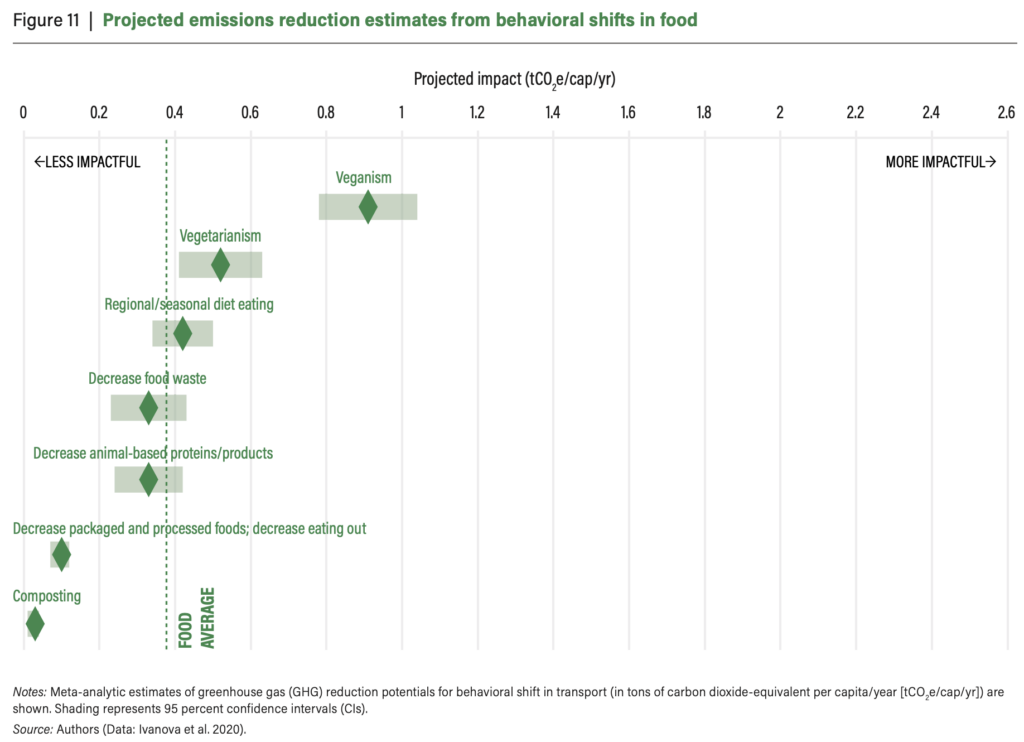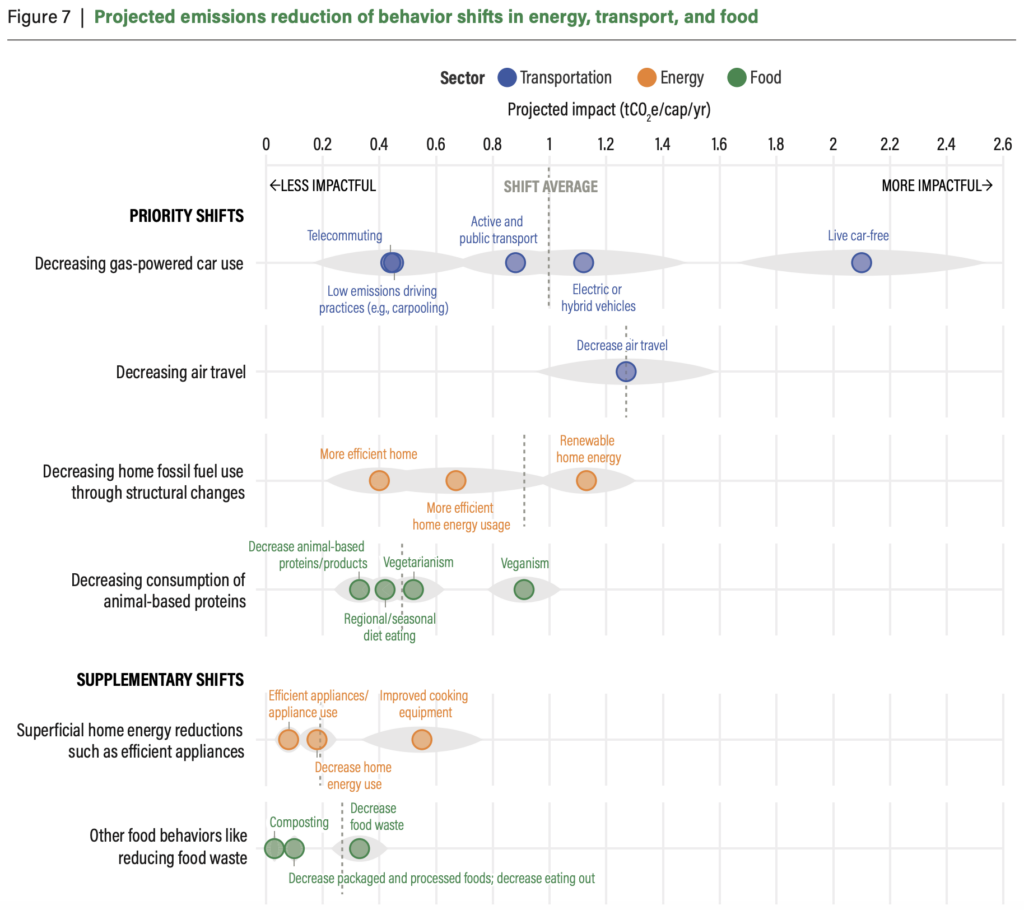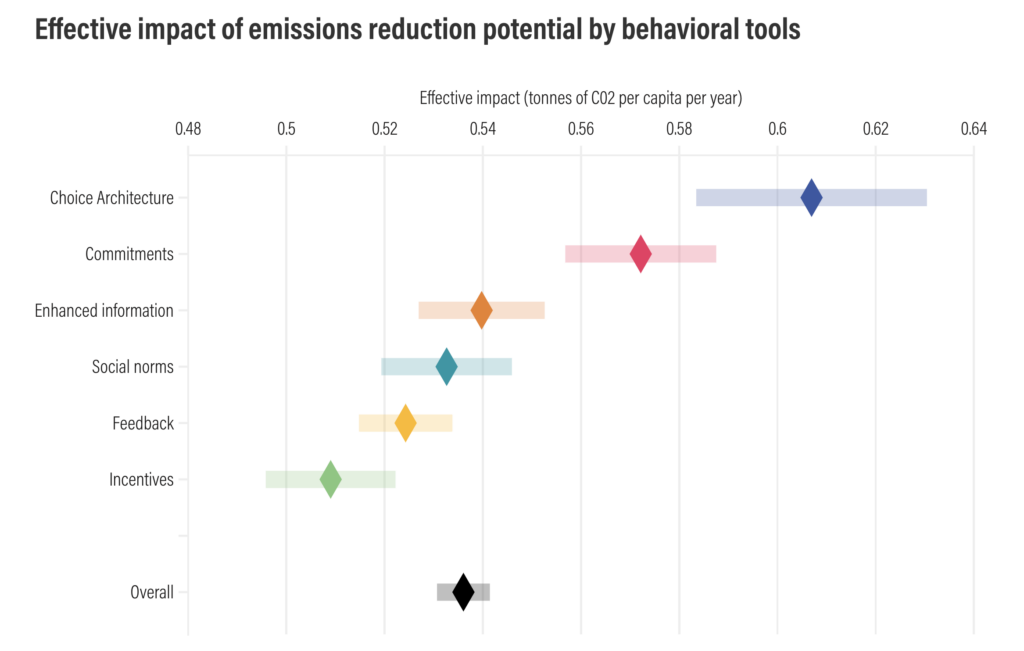
Even the most impactful climate actions will only help you cut a tenth of your emissions reduction potential – the rest depends on systemic change and collective action.
Going car-free, lowering air travel, installing solar power at home, and adopting a vegan diet could, in theory, help cancel out an individual’s carbon footprint – in reality, 90% of this potential reduction is locked away, according to a new report.
Researchers at the World Resources Institute (WRI) have found that the key to actual, lasting emission reduction lies with governments, businesses, and collective action. Changing behaviours has a fraction of the impact of overhauling the overarching systems around them.
The report cited 2022 data from the Intergovernmental Panel on Climate Change (IPCC), which suggested that individual behavioural change across transport, energy and food choices could lower global emissions by 34%, but “comprehensive” shifts – think tech advancements, industry practices, and policies – could lead to a 40-70% reduction.
WRI analysed 11 pro-climate behaviours that could reduce a person’s annual emissions by 6.53 tonnes, cancelling out the global average of 6.28 tonnes. However, without supportive systems, they can only reduce about 10% (0.63 tonnes) per year.

Which environmental choices have the biggest impact?
The researchers identified four “priority shifts” among food, transportation and energy that emerged as the highest-impact behaviours.
The first shift revolves around decreasing the use of gas-powered cars, with three of the top six behavioural changes linked to this. Living car-free is the most impactful individual action, having the potential to reduce 30% of global per capita emissions. Other actions here include switching to electric vehicles and increasing the use of public transportation.
Decreasing air travel is the next priority shift – it could reduce emissions by 18%. This is followed by the use of renewable energy at home (linked with a 16% cut in emissions), which includes adopting solar power and home renovations like adding insulation.

The fourth priority shift concerns food, specifically reducing animal proteins. Being vegan is, by far, the most effective climate solution in this category, associated with a potential emission reduction of 13%. In contrast, going vegetarian cuts personal carbon footprints by just 7.5%, while focusing on seasonal/local eating reduces them by 6%, and decreasing animal-based products by 4.8%.
Other common eco behaviours that have a minimal impact on climate change mitigation – which the WRI refers to as “supplementary shifts” – include decreasing food waste or packaged food consumption, and shifting to more efficient appliances.
The research highlights the importance of prioritisation, since the difference in the potential impact of behaviours is “staggering”. Living car-free (a priority shift) is 78 times more effective than composting (a supplementary shift).
More “dramatic shifts” make a greater difference. While vegan diets can save nearly a tonne of emissions per year, about a sixth of the average citizen’s emissions, reducing meat intake alone captures 40% of that total, an encouraging stat for those who cannot commit to an entirely animal-free diet. “Changing what food we choose matters more than how we handle that food,” notes the report.

How to accelerate collective climate action
WRI’s research shows that across several behavioural tools, choice architecture (making sustainable options more appealing and accessible) and commitment-based approaches (encouraging pledges to take public transport more often, for example) are the most impactful tools. Other interventions, like providing enhanced information (such as carbon calculators), show some of the lowest impacts.
How does that translate into the real world? Policymakers must focus on the priority shifts, rather than dispersing efforts across low-impact behaviours. They should facilitate a shift away from gas-powered cars by investing in public and electric transport infrastructure and incentives like e-bike subsidies.
Energy industry interventions could include shifting at-home energy to solar and decreasing baseline power use, which could be helped by defaulting homeowners into solar assessments during key transitions and offering price incentives to make these changes more affordable.
In the food sector, meat reduction is the most promising behavioural shift, and choice architecture is a great tool to leverage here. This would involve increasing the number of plant-based meals in public institutions – as New York City has done in its hospitals – and making these the default option over meat-based dishes in university dining halls.

“In the Global South, where meat consumption is often lower but projected to rise with increasing affluence, information campaigns can promote the continuation of plant-based diets and invest in research and development of indigenous crops and plant-based proteins,” the researchers write.
Industry leaders, meanwhile, should align their climate goals with the priority shifts, apply proven tools, and work together to establish common metrics for behavioural change impacts to develop an industry-wide roadmap for climate action.
At an individual level, citizens can change key behaviours and push for better policies and industry practices that make sustainability more accessible and affordable. “This means moving beyond individual purchases toward organising campaigns that push companies to make sustainable choices the norm,” notes Mindy Hernandez, a co-author of the report.
“Voting at both the national and local levels is key, as elections directly determine whether governments enable or hinder pro-climate behaviours,” she adds.
The post Without Regulation, You Can Only Cancel Out 10% of Your Individual Carbon Footprint appeared first on Green Queen.
This post was originally published on Green Queen.